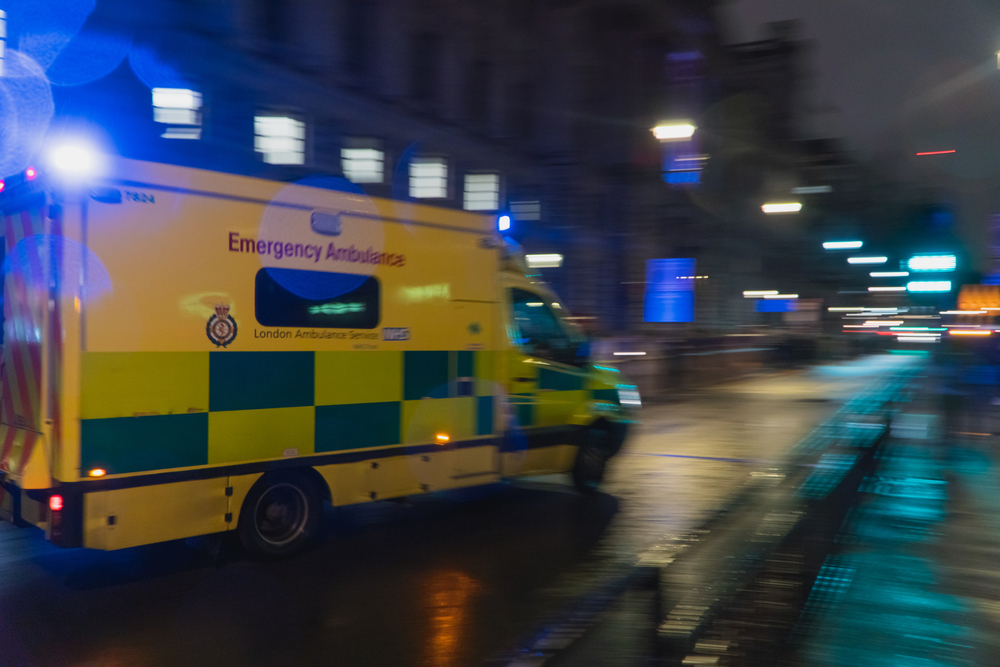UNISON has written to ambulance service chiefs calling for urgent support for staff as services face unprecedented 999 call volumes and unsustainable demand from the public.
The letter says employers must act now to limit the impact on the wellbeing and morale of staff, especially those working in control rooms.
In the letter, UNISON says ‘missed meal breaks, late finishes, queuing outside hospitals and increasing levels of sickness absence have become widespread’. The letter continues: “This is all having a terrible impact on morale, as well on the health and wellbeing of ambulance staff.
“Ambulance staff have been at the forefront of the Covid response, working under levels of pressure never seen before.”
Ill thought-out trust systems and working patterns – and growing delays as ambulances queue to hand over patients at over-stretched hospitals lacking sufficient staff and front line beds make matters worse.
In June UNISON, Unite and GMB got together in the North West to call on bosses at the North West Ambulance Service (NWAS) NHS Trust to change the system that can see ambulance workers called anywhere across the region with up to 40 minutes driving time.
The three unions accused the NWAS management of ‘failing both patients and staff,’ and held a consultative ballot of ambulance members in July to see if they wished to have a full-scale industrial action ballot, including the option to strike.
In June NWAS was receiving an estimated 4,500-5,000 999 calls each day – more than 50 per cent of which were identified as category 2. These calls are classed as an emergency for a potentially serious condition that may require rapid assessment, urgent on-scene intervention and/or urgent transport.
The London Ambulance Service (LAS) has also faced “significant pressure” this summer as it tackles “unprecedented” demand, with June, July and August this year making up three of the top five busiest months ever for 999 call operators. July was second busiest only to March 2020 when paramedics worked through the first peak of the coronavirus pandemic.
West Midlands Ambulance Service also reports that 19 of the 20 busiest days they have ever experienced have come in June, July, August and September this year. However the increased call volume has run alongside unprecedented abuse and even death threats against hard-pressed call handlers, and ambulance crews have faced violence when they arrive to treat patients.
Nationally more than 1 million 999 calls were handled by ambulance staff in the month of July, the highest total on record.
Major issues that are being reported to UNISON by staff across the country include:
- An ambulance service employee having to attend jobs for an extra five hours and travel over 100 miles after their shift officially ended.
- Timewasting 999 calls from the public including requests for crews to attend a property where someone couldn’t reach their TV remote control and another where the person was too hot because they couldn’t turn their heating off.
- Staff at ambulance stations crying at the end of their shifts because of stress, low morale and lack of breaks. Some are spending hours queuing in A&E department corridors waiting to hand over patients on stretchers to hospital staff.
- Significant delays in responding to patients because of the overwhelming number of emergency calls. One service had 400 calls outstanding and had worried people ringing back asking when an ambulance would arrive.
- Emergency call handlers starting shifts with ambulances needed at over 100 incidents. In some cases, there’s been a 24-hour wait for ambulances to arrive.
- Ambulance services regularly reaching the highest possible alert level (REAP 4) because they’re under such extreme pressure.
UNISON is urging employers to ensure employees get their legal entitlement of rest periods, minimise missed meal breaks and shift overruns, and check staff are not working excessive hours because of overtime or extra shifts.
Dear Reader,
If you like our content please support our campaigning journalism to protect health care for all.
Our goal is to inform people, hold our politicians to account and help to build change through evidence based ideas.
Everyone should have access to comprehensive healthcare, but our NHS needs support. You can help us to continue to counter bad policy, battle neglect of the NHS and correct dangerous mis-infomation.
Supporters of the NHS are crucial in sustaining our health service and with your help we will be able to engage more people in securing its future.
Please donate to help support our campaigning NHS research and journalism.


